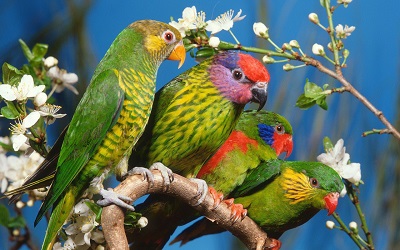Scientists are warning of the risks of wild birds spreading diseases when they gather at feeders in gardens.
Experts led by Zoological Society of London say people should continue to feed birds, especially in winter, but should be aware of the risks, according to BBC.
If birds look sick, food should be withdrawn temporarily, they say.
The review of 25 years’ worth of data identified emerging threats to garden birds. Finches, doves and pigeons are vulnerable to a parasite infection.
Meanwhile, a form of bird pox is becoming more common, causing warty-like lumps on the bodies of great tits and other birds.
Other disease threats, such as salmonella, appear to be declining.
“Our study shows how three of the most common diseases that affect British garden birds have changed both dramatically and unpredictably over the past decade, both in terms of the species they affect and their patterns of occurrence,” said Dr Becki Lawson from ZSL’s Institute of Zoology.
Common signs that a wild bird is ill include unusually fluffed-up plumage and lethargy.
Diseases can be spread through droppings or regurgitated food around bird feeders.
Finding out more about the changing pattern of diseases will help to ensure that garden birds can be fed safely, say the researchers.
She told BBC News: “Be very vigilant – enjoy feeding the birds but educate yourself about what the risks are and what to do if you see signs of disease.”
It was important to continue to feed wild birds, especially in winter, when they need lots of food to survive, she said.
It found that patterns of infection in wild birds are changing.
This may be influenced by wild birds congregating at bird feeders and coming into contact with species they don’t encounter naturally in the wild.
H.Z

